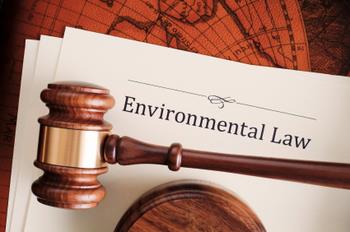What are Environmental Prosecutions?

Environmental regulations are a quickly evolving, complex, and progressively stringent area of the law. The new demands of environmental responsibility have critical implications for both individuals and business owners.
Under Canada’s constitution, responsibility for the protection of the environment is divided between the federal and provincial governments. The Canadian Environmental Protection Act is the foundation of legislation in this area. Laws seek to prevent pollution and preserve and protect air, land and water.
In Ontario, the Ministry of the Environment and Climate Change staff work to prevent pollution, restore and protect the environment, and enhance public health, environmental quality and economic vitality in Ontario.
The federal government and the provinces and territories share the enforcement of environmental regulations. With the continued rise of public awareness about environmental responsibility, smaller municipalities are also taking on larger roles in environmental law enforcement.
Enforcement, penalties and prosecution related to the Canadian Environmental Protection Act (CEPA) range from warnings about the existence of violations to tickets, orders, injunctions and fines.
Historically, fines under the Environmental Enforcement Act (EEA) range from $5,000 to $6,000,000. Offences can also result in arrest without warrant, or the seizing or detainment of evidence associated with an offence. Convictions or indictments under the CEPA can result in imprisonment up to three years.
Caramanna Friedberg LLP can assist you in understanding environmental regulations pertaining to your business. We will collaborate with you to ensure your operations are compliant and protected. We can also help resolve investigations before they become prosecutions. In the event that you or your business is charged, we provide comprehensive advice and passionate representation.
Due to the rapidly expanding terrain of environmental regulations, the need for expert legal advice and defence is more critical than ever. Contact Caramanna Friedberg LLP for strategic management counsel and representation for environmental prosecutions.